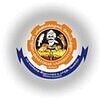MBA in Finance Syllabus and Subjects: Semester Wise

The MBA Finance syllabus is divided into 4 semesters that focus on a comprehensive understanding of finance principles, theories, concepts, and their application in real-world business scenarios. MBA in Finance subjects include concepts of financial markets, investment strategies, and risk management techniques.
MBA in Finance 1st year syllabus covers fundamental areas of management. MBA in Finance 2nd year syllabus includes studies based on core areas of finance and financial management such as Security Analysis & Portfolio Management, financial reporting, etc.
The MBA in Finance aims to equip students with the managerial, leadership, and problem-solving skills necessary to succeed as future executives in the financial industry through industry-oriented projects, internships, on-the-job training, etc.
Table of Contents
- Semester Wise MBA Finance Syllabus
- MBA Finance Subjects
- College-Wise MBA Finance Syllabus
- MBA Finance Projects
- MBA Finance Teaching Methodology and Techniques
- MBA Finance Reference Books
Semester Wise MBA Finance Syllabus
The MBA Finance syllabus includes fundamental financial concepts including security analysis, financial goods and services, international finance, structured finance, etc. The semester-wise MBA Finance syllabus is given below:
First Year Semester Wise MBA in Finance Syllabus
The subjects in MBA Finance first year focus on understanding financial management principles and their various aspects such as financial accounting, corporate finance, etc. The MBA Finance subjects 1st year are given below:
|
Semester I |
Semester II |
|
Managerial Economics |
Management Accounting |
|
Principles of Management & Organisational Behaviour |
Financial Management |
|
Financial & Managerial Accounting |
Human Resources Management |
|
Marketing Management |
Management Control and Information System |
|
Business Communication & Soft Skills |
Operation Management |
|
Quantitative Methods and Statistics |
Business Research Methodology & Research Project |
Second-Year Semester Wise MBA Finance Syllabus
MBA Finance subjects in the second year include elective subjects and cover a variety of interdisciplinary management concepts. The following are MBA in Finance subjects in the second year.
|
Semester III |
Semester IV |
|
Strategic Management |
Project Management |
|
Business Law & Environment |
Business Ethics & Corporate Governance |
|
Strategic Financial Management |
Security Analysis & Portfolio Management |
|
International Trade and Finance |
Financial Derivatives |
|
Corporate Financial Reporting |
Risk Management: Tools and Applications |
|
Electives |
Electives |
|
- |
Project Work |
Note: Almost all of India's Top Management Colleges follow the aforementioned pattern and structure of the MBA Finance syllabus. However, students can access the MBA Finance syllabus PDF by visiting the college website.
Also Read: List of MBA Colleges Accepting 70 to 80 Percentile in CMAT 2024
MBA Finance Subjects
MBA in Finance subjects cover concepts based on the core functionalities of financial management along with business administration such as financial derivatives, risk management, business valuation, and quantitative finance. The following is the MBA Finance subjects list consisting of core and elective topics:
|
Core Subjects |
Elective Subjects |
|
Joy of Management |
Credit Analysis and IPO Analysis |
|
Micro-Economics |
Alternative Investments and Portfolio Management |
|
Business Statistics |
Mergers and Acquisitions |
|
Organisational Behaviour |
Wealth Management |
|
Financial Statement Analysis and Reporting |
Business Valuation and Modelling |
|
Marketing and Consumer Behaviour |
Advanced Corporate Finance |
|
Business Research Methodology |
Behavioural Finance and Technical Analysis |
|
Operations Research |
Derivatives and Financial Risk Management |
|
Macro-Economics & Policy |
MBA Finance Subjects in Details
MBA Finance subjects are widespread among several domains such as accounting, statistics, and economics. A detailed view of some of the subjects in MBA Finance is given below:
|
MBA Finance Subjects list |
Topics Covered |
|
Managerial Economics |
Basics of demand and supply, Theory of optimization of the firm, Market structure & pricing strategies, Measuring the value of the economic activity, National Income, Commodity Market & Money Market Equilibrium |
|
Financial Accounting |
Accounting functions and their changing dimensions, The Financial Accounting Process, Financial Statements, Measuring Business Income, Classified Financial Statements, Income Measurement, Company accounts |
|
Financial Management |
Cost of capital, Leverage Analysis, Capital structure theories and dividend policy, Investment Decisions, Working capital management, Capital Budgeting |
|
Security Analysis & Portfolio Management |
Portfolio Analysis, Portfolio selection, Capital Market Theory and Evaluation of Investment Performance, Evaluation of portfolio performance, Fundamental & Technical analysis |
|
Strategic Cost Management |
Life Cycle Costing, Target Costing, Value Chain Analysis, Quality Costing, Techniques of Financial Evaluation, Risk Analysis of Investment Decision |
|
Corporate Financial Reporting |
Preparation and presentation of Company Final Accounts, Consolidated Accounts, Segment Reporting, Tools and Types of Financial Statement Analysis, Profitability Analysis |
Also Read: CMAT Top Colleges with Low Fees for MBA in 2024
College-Wise MBA Finance Syllabus
MBA Finance syllabus may differ from college to college based on their curriculum and program objective. To have a better understanding of the course students can download the MBA Finance syllabus PDF 2024 from the university website. The subjects in MBA Finance for top colleges are provided below:
Pondicherry University MBA Finance Syllabus
Pondicherry University offers MBA courses under the Department of Management Studies in various specialisations such as financial technology and finance. Given below is the semester-wise MBA Finance subjects list for Pondicherry University:
|
MBA Finance 1st Sem Subjects |
MBA Finance 2nd Sem Subjects |
|
Management Principles and Organisational Behaviour |
Basics of Marketing Management |
|
Managerial Economics |
Basics of Financial Management |
|
Research Methods |
Operations Management and Research |
|
Business Law and Environment |
Fundamentals of HRM |
|
MBA Finance 3rd Sem Subjects |
MBA Finance 4th Sem Subjects |
|
Accounting for Managers |
Fundamentals of Financial Derivatives |
|
Financial Management Strategies |
Finance Management: Global Perspective |
|
Basics of Financial Services and Merchant Banking |
Portfolio Management |
|
Basics of Project Management |
Fundamentals of Security Market Operations |
|
Elective |
Elective |
|
- |
Project Work/Report |
Pune University MBA Finance Syllabus
Pune University is a government-based institution providing MBA courses based on various specialisations including finance. Given below is the semester-wise MBA in Finance syllabus at Pune University.
|
MBA Finance 1st Sem Subjects |
MBA Finance 2nd Sem Subjects |
|
Basic Concepts |
Capital structure |
|
Decision-making tools |
Techniques of Financial Analysis |
|
Cost Control |
Capital Budgeting |
|
Cost Accounting |
Business Finance |
|
Accounting For Business Decisions |
Working Capital Management |
|
Understanding of Financial Statements |
- |
|
Management Accounting |
- |
|
MBA Finance 3rd Sem Subjects |
MBA Finance 4th Sem Subjects |
|
Financial System |
Financial Markets |
|
Merchant Banking |
Capital Markets |
|
Financial Market Functions |
PFRDA |
|
Direct Taxation |
Income Tax |
|
Stock Exchange |
Credit Rating Agencies |
|
Direct Taxes |
Venture Capital |
|
Financial Institutions in India |
Financial Services |
IGNOU MBA Finance Syllabus
IGNOU or Indira Gandhi National Open University is widely known for distance learning courses, also offering an MBA program with a specialisation in finance. The semester-wise MBA Finance syllabus at IGNOU is given below:
|
MBA Finance 1st Sem Subjects |
MBA Finance 2nd Sem Subjects |
|
Managerial Economics |
Quantitative Analysis for Managerial Applications |
|
Management of Human Resources |
Accounting and Finance for Managers |
|
Management Functions and Behaviour |
Strategic Management |
|
Organisational Design |
Marketing for Managers |
|
Development and Change |
Economic and Social Environment |
|
MBA Finance 3rd Sem Subjects |
MBA Finance 4th Sem Subjects |
|
Information Systems for Managers |
International Financial Management |
|
Working Capital Management |
Capital Investment and Financing Decisions |
|
Management Control Systems |
Management of Financial Services |
|
Security Analysis |
Equity Markets |
|
Portfolio Management |
Research Methodology for Management Decisions |
IIM MBA Finance Syllabus
IIM Kozhikode has introduced a PGP course in Finance, also called as MBA Finance focusing on understanding financial services for businesses, wealth management, etc. The following is the semester-wise MBA Finance subjects list for IIM Kozhikode:
|
MBA Finance 1st Sem Subjects |
MBA Finance 2nd Sem Subjects |
|
Business Communication |
Macro Economics |
|
Finance Mathematics |
Managerial Principles |
|
Business Law and Ethics |
Management and Cost Accounting |
|
Managerial Economics |
Basics of Corporate Finance |
|
Basics of Financial Market, Instruments, and Institutions |
Fundamentals of Information Systems in Accounting |
|
MBA Finance 3rd Sem Subjects |
MBA Finance 4th Sem Subjects |
|
Fundamentals of Fixed Income Securities |
Finance from International Business Perspective |
|
Basics of Corporate Valuation |
Basics of Corporate Governance |
|
Finance Project |
Financial Risk Management |
|
Strategic Management |
Elective-II |
|
Elective-I |
Project Work/Report |
MBA Finance Projects
MBA Finance project topics can be on various matters such as credit schemes, ratios, financial accounting of companies, and more. These projects are assigned based on teams or individually which are required to complete in the 4th semester and presented through case study analysis or PPT presentation.
The project motivates the students to develop skills in the areas of cost control and wealth management and bring clarity to the subject matter along with relevant industry exposure. Popular projects under the MBA in Finance syllabus are given below:
- A study of working capital management
- Investment analysis of the company
- Income tax planning in India
- Ratio analysis
- Research on the Indian banking system
- Investment decision methods
- Senior citizen investment portfolio
- RTGS: merits and demerits
Also Read: MBA Project Topics
MBA Finance Teaching Methodology and Techniques
A variety of teaching techniques and methodologies are used in the MBA in Finance course to make the course engaging and skill-oriented, some of which are listed below:
- Discussions
- Field Trips
- Group Projects
- Research Projects
- Case Studies
- Seminars/Workshops
- Co-Curricular Activities
Also Read: MBA Marketing Vs MBA Finance
MBA Finance Reference Books
There are many books under the MBA Finance syllabus that one can refer to planning on pursuing the course. Students can gain more information about the main books by accessing MBA in Finance syllabus pdf.
Some study materials and books recommended by the experts are listed below:
|
Books |
Topics Covered |
Author |
|
MBA Fundamentals Accounting and Finance |
Financial Accounting, Business Accounting |
Michael P. Griffin |
|
Soft Skills Business and Professional Communication |
Business Communication, Interpersonal Skills |
Sutapa Banerjee |
|
Macroeconomics for MBAs and Master of Finance |
Economics at Global Scale, Accounting and Financial Management |
Morris A. Davis |
|
Finance and Accounting for Nonfinancial Managers |
Financial Management, Business Accounting, Accounting Analysis |
Samuel C. Weaver and J. Fred Weston |
Also Read: Top 10 MBA Colleges Accepting XAT Exam 2024
Top MBA in Finance Colleges
Top Management Entrance Exams
MBA in Finance Fee Structure
FAQs on MBA in Finance Syllabus and Subjects
Q: Why MBA in Finance is one of the most demanding specialisations?
Q: What are the main subjects of MBA in Finance?
Q: Is Mathematics compulsory for MBA in Finance?
Q: Does MBA Finance have algebraic maths?
Q: What are the important books for MBA Finance?
























